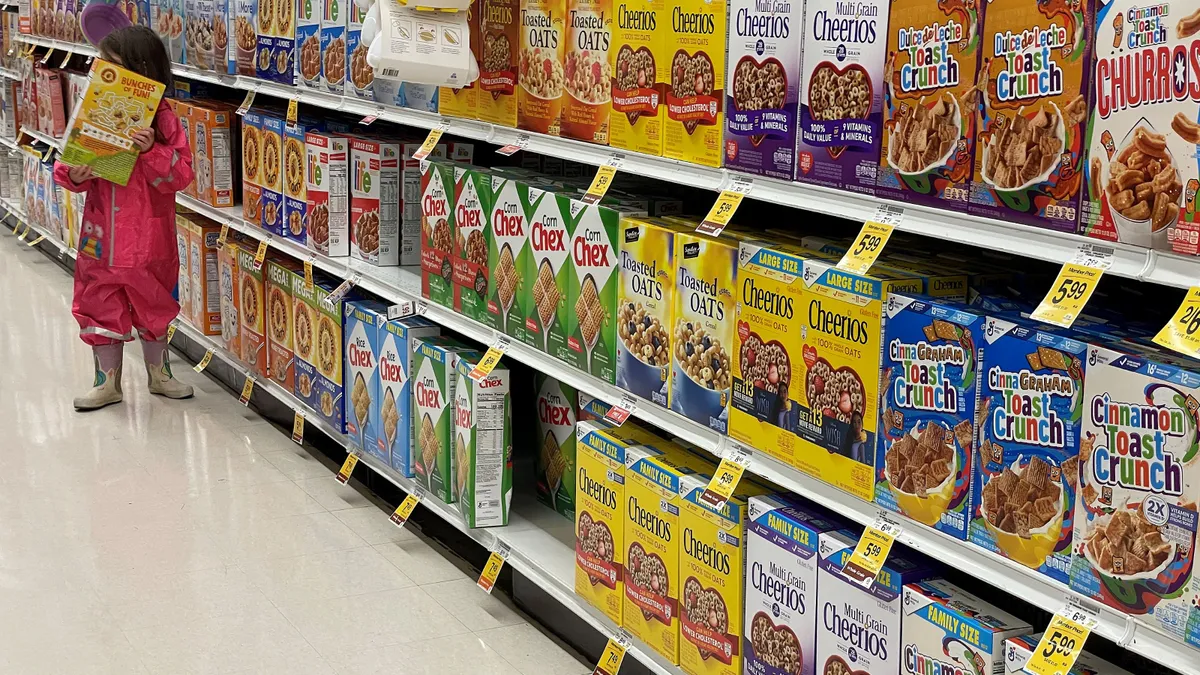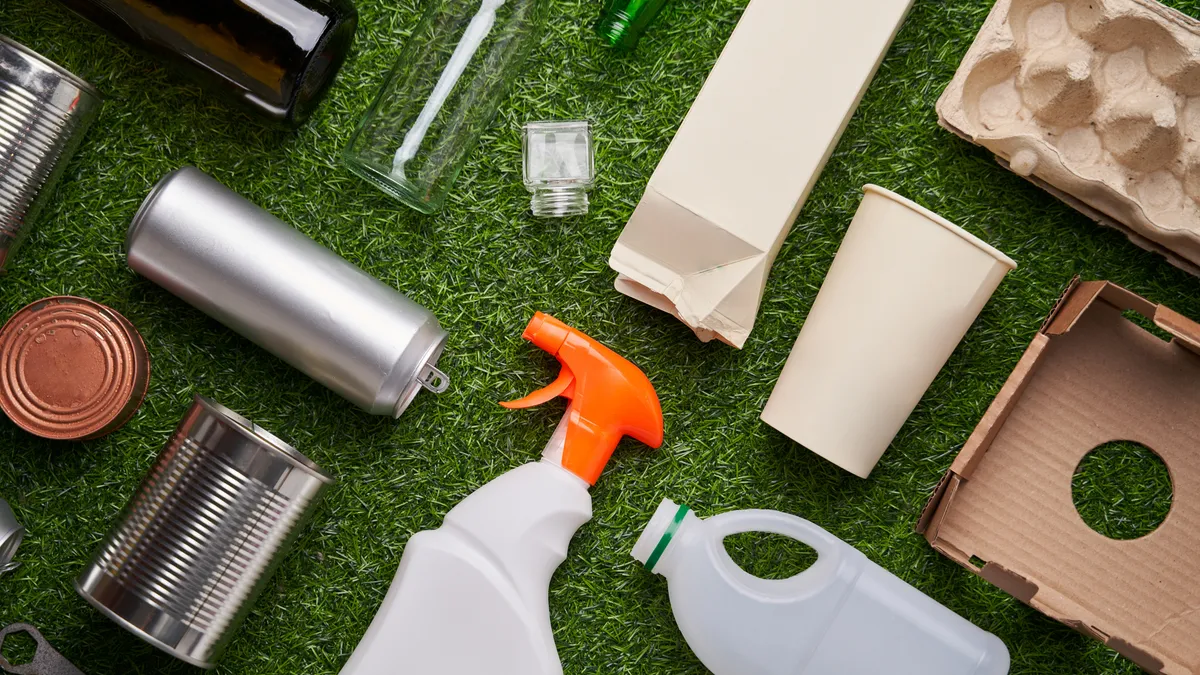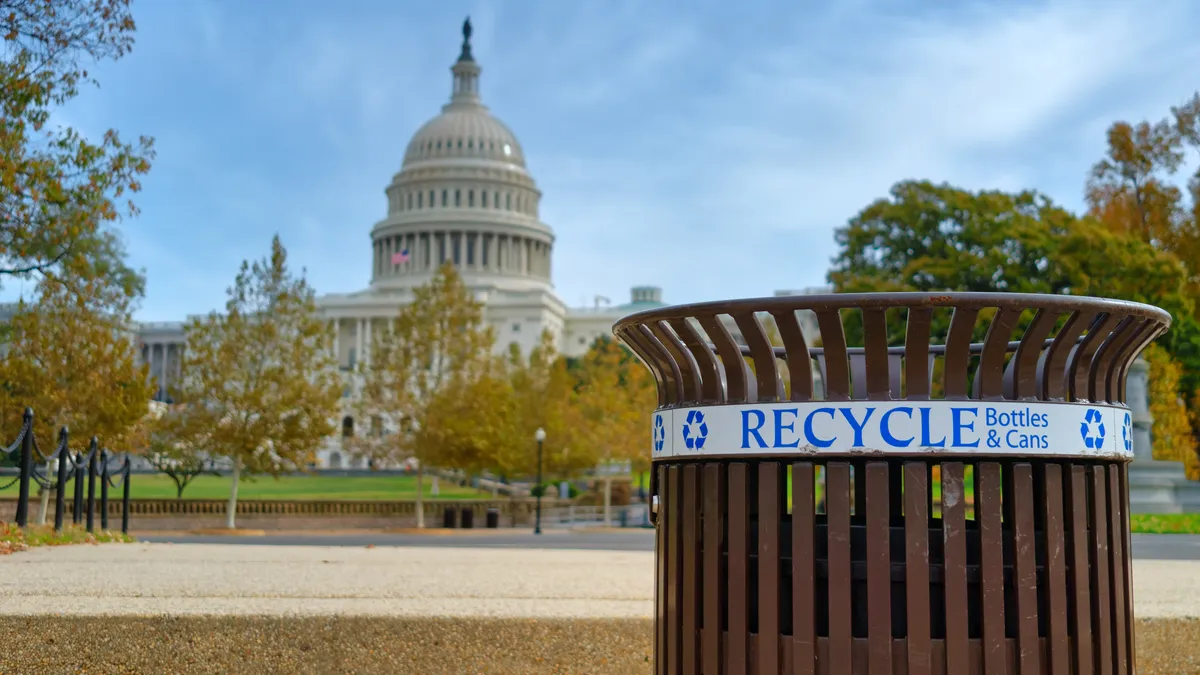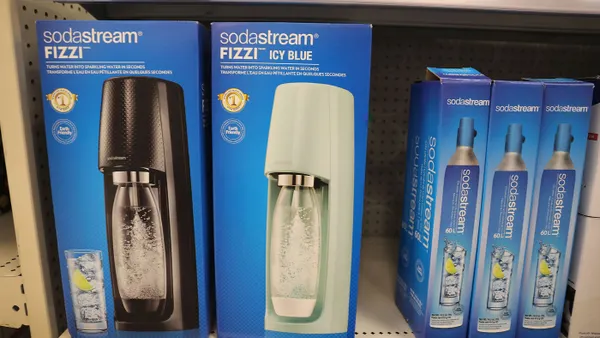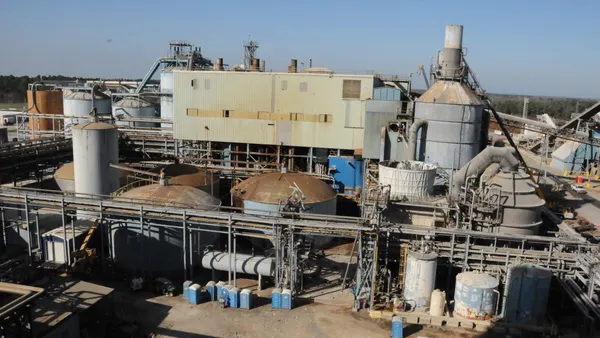General Mills’ progress on making its entire packaging portfolio recyclable or reusable stagnated in fiscal year 2024 at 93%, the same rate reported a year prior.
The food company reiterated its commitment to achieving 100% by 2030, a target it’s had since early 2019, in its 2025 global responsibility report released this month. But next steps can be tricky, especially when considering greenhouse gas emissions impacts.
“As we look to make significant advancement to our 2030 ambition, we recognize that shifting to more readily recyclable packages can come with a higher GHG Impact,” the company wrote, saying it will continue to collaborate with suppliers “to mitigate this impact long term as we iterate to optimize our packaging designs.”
General Mills highlighted several packaging innovations in different regions during the year, including removing plastic liners from certain frozen breakfast items and transitioning seasoning mixes to monomaterial packaging.
General Mills did not respond to a request for comment about the stagnation in recyclability.
The Minneapolis-based CPG’s brands include numerous cereals, snack bars, yogurts, baking mixes, frozen foods and more. Despite a slight upswing in plastic in fiscal year 2024, which ended May 26, fiber remains the lion’s share of the packaging portfolio. The portfolio was 73% fiber, 13% plastic, 7% steel, 4% glass, 2% composite cans and 1% aluminum.
Within its flexible plastic packaging, the company said its main focus has been on transitioning from multimaterial packaging to mono-PE, with 46 million pounds converted to date. The proportion of multimaterial versus mono-PE within its plastic packaging portfolio are now close to equal.
As with last year, General Mills discussed challenges with recycled content: “the majority of our plastic is direct food contact flexible packaging — which does not currently have a widely available and safe food-grade [PCR] alternative,” the company wrote.
The company continues work on improving data methods, including to better track recycled content and packaging reductions going forward. For example, in FY2024 it began factoring in external supply chain packaging.
Nonetheless, future sustainability reports are expected to show flexible and rigid plastics alike playing a smaller role in the packaging portfolio, General Mills noted, because it expects to finalize the divestiture of its North American yogurt business in 2025.



